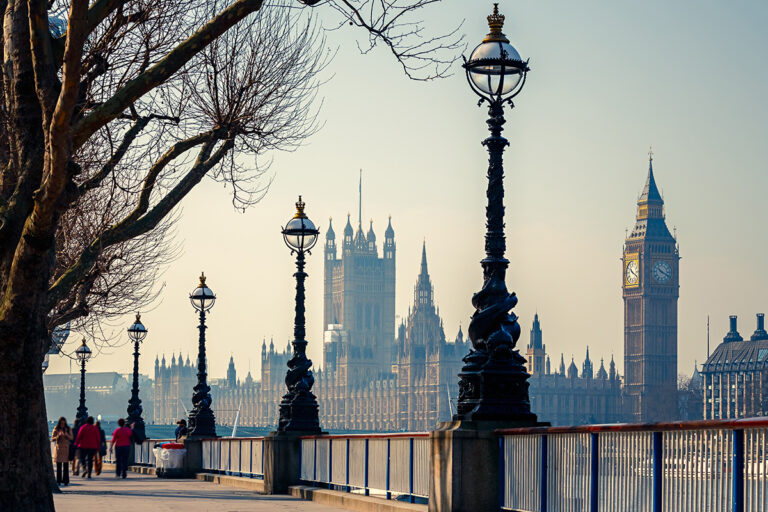A new survey by Canadian investor migration consultancy Arton Capital revealed the scale of unease among Britain’s affluent. Of the 1,009 UK residents with at least £1 million ($1.35 million) in net assets surveyed, over 50 per cent said they were more likely to relocate under a wealth tax, while 60 per cent believed they could enjoy a better quality of life overseas.
Notably, 47 per cent of Labour-voting millionaires said they too would consider leaving – raising awkward questions for Chancellor Rachel Reeves about whether the very voters who delivered Labour its landslide could now be preparing to take their fortunes abroad.
The findings add to a growing body of evidence that Britain’s elite are already on the move. According to Henley & Partners’ Private Wealth Migration Report 2025, the UK is set to lose 16,500 millionaires this year – the most of any country worldwide – with those departing collectively holding about £66 billion ($89 billion) in liquid investable assets.
Demand for second passports surges
The Arton Capital Affluence & Elections Survey also points to a surge in demand for second passports. Some 82 per cent of respondents said they would be interested in a golden visa or citizenship-by-investment programme, a figure that underlines how Britain’s rich are hedging their bets.
When asked where they would move, the United States (35 per cent) topped the list, followed by Canada (33 per cent) and Australia (25 per cent). The United Arab Emirates ranked fourth at 17 per cent, highlighting a pull towards both English-speaking destinations and the Gulf’s tax-free, luxury lifestyle.
Paradoxically, two-thirds of respondents still view the UK as an attractive place to invest, buoyed by London’s enduring status as a global financial hub. The split between where Britain’s millionaires want to live and where they want to put their money underscores a trend: wealthy Britons increasingly see the UK as a market, not a home.
“The UK is at a tipping point,” said Armand Arton, CEO of Arton Capital.
“The uncertainty around the government’s proposed wealth tax mirrors the ongoing economic uncertainty seen around the world – from Trump’s tariffs to conflict in the Middle East. One thing is clear: the longer that unpredictability persists, the greater the risk of losing capital, talent, and long-term investment to countries that offer greater security for individuals, families, and their futures.”

The wealth-tax debate
At the heart of the turmoil is Labour’s consideration of a wealth tax as part of a wider push to raise revenues and plug a public-finance gap. Recent reporting puts the shortfall at roughly £40 billion (~$54 billion), with some estimates higher – the National Institute of Economic and Social Research has suggested up to £51 billion ($68.8 billion) – framing the pressure Reeves faces ahead of the autumn budget.
Reeves has already confirmed plans to abolish the non-domiciled tax status from April 6, ending the remittance-basis regime and moving to a residence-based system that includes a limited four-year “foreign income and gains” regime for new arrivals.
The exact design of any wealth tax remains unclear, but models discussed in policy circles include an annual levy on net assets above a threshold, or a one-off charge on multimillionaires. The Institute for Fiscal Studies cautions that an annual wealth tax would be difficult to implement, would require robust valuation of hard-to-price assets, and would need to apply broadly to avoid easy circumvention – arguing instead for tightening how the UK taxes the sources and uses of wealth (capital gains, dividends and inheritances) first.
Reeves has also tried to cool speculation by stressing a focus on growth and closing loopholes and the tax gap rather than “tinkering around with taxes,” she told The Guardian in earlier coverage; Labour likewise briefed that closing gaps and loopholes would fund commitments.
Still, for many of Britain’s richest families, the uncertainty itself is enough.
“Tax changes like ending non-dom status and stricter inheritance rules have led many wealthy families to explore relocation,” Arton told Arabian Business.
“The UAE has built a robust and welcoming framework that aligns with the needs of ultra-high-net-worth individuals – for many it’s at the top of their list.”
“Relocation is often prompted by the desire for a lifestyle upgrade rather than financial prospects alone – so it’s no wonder savvy British investors are looking to take advantage of the luxury lifestyle available in the UAE,” he added.

The great wealth escape
Data from Henley & Partners paint a stark picture. In 2024, 10,800 millionaires left the UK – already a record. This year’s projected 16,500 outflow dwarfs that figure, marking the first time in a decade of tracking that a European country has topped the global rankings for millionaire departures.
The surge follows the closure of Britain’s Tier 1 Investor Visa in February 2022, long a popular route for wealthy foreigners, and coincides with the announced end of non-dom status. Henley also reports that in Q1 2025, applications by UK nationals for alternative residence or citizenship surged 183 per cent year-on-year.
The US, Canada and Australia remain the traditional destinations. But the UAE has rapidly emerged as a rival, set to record a net inflow of 9,800 millionaires in 2025 – more than any other country – with the US projected at +7,500.
“While the US, Canada, and Australia have long served as migration hubs for Brits, the UAE is emerging as an attractive destination due to its pro-business environment and the luxurious lifestyle it offers,” Arton said.
“On top of this, the UAE imposes no personal income tax. When you combine these factors with the country’s best-in-class infrastructure and thriving expatriate community, moving to the UAE seems like a no-brainer.”
The Golden Visa programme is a particular draw, offering long-term renewable residency to investors, entrepreneurs and skilled professionals. Formally, it provides residency rather than an automatic path to citizenship; naturalisation is possible only in exceptional cases under UAE law.
Saudi Arabia’s Premium Residency scheme is also beginning to attract attention, though Arton said Riyadh remains “an emerging rival rather than an immediate one.”
Arton also noted that family businesses are weighing structural moves.
“Tax changes in the UK… have led many wealthy families to explore relocation, and the UAE’s framework – including family-office-friendly residency options – fits those needs.”
For Britain, the consequences could be severe. Henley warns that the outflow of wealthy residents could undermine the UK’s competitiveness as a global financial centre and sap investment in industries from real estate to private equity.

